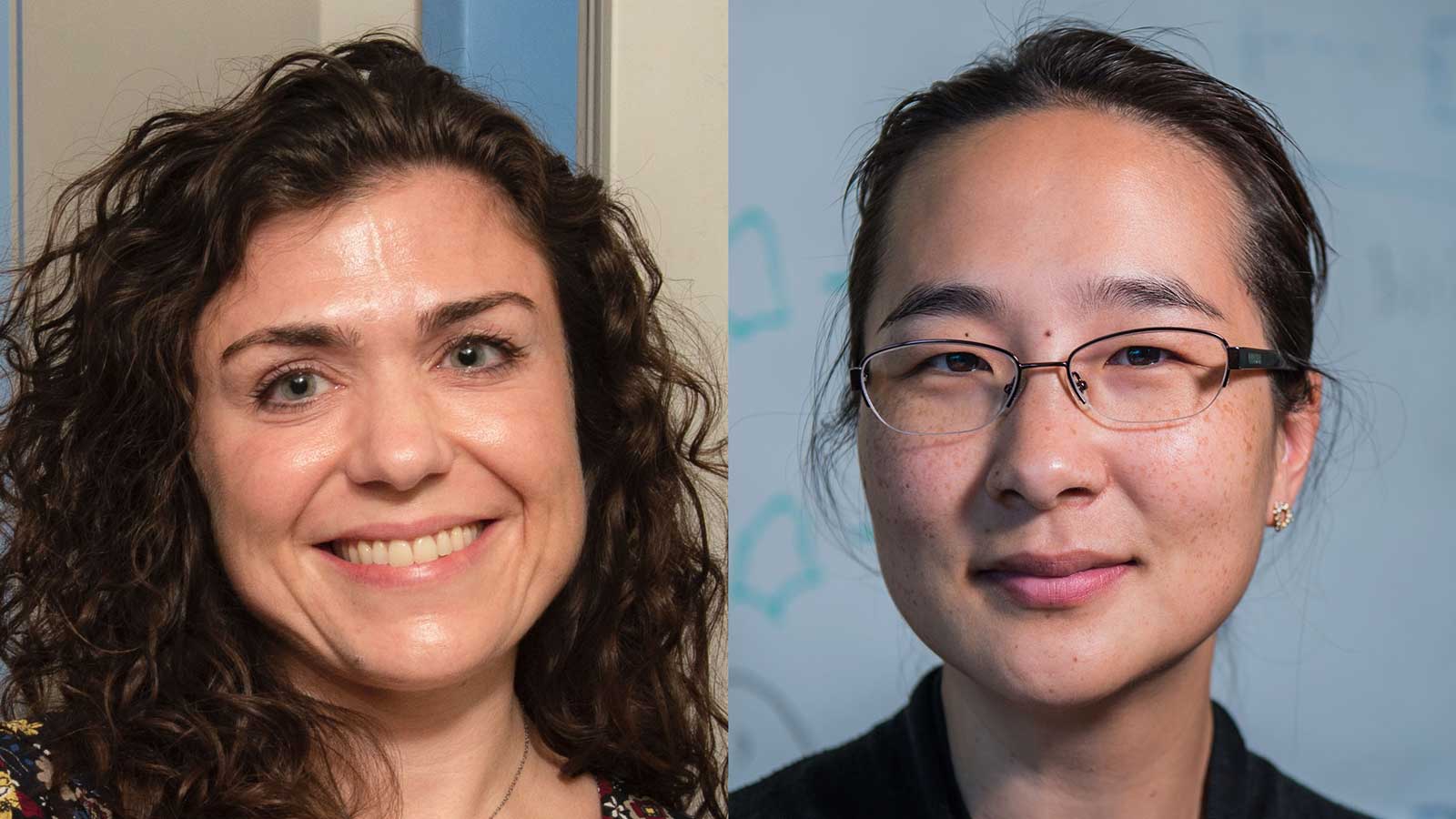Two bioengineering researchers in the George R. Brown School of Engineering have been named fellows of the American Institute for Medical and Biological Engineering (AIMBE).
Laura Segatori, associate professor of bioengineering (BIOE), chemical and molecular biology, and biosciences, and Junghae Suh, professor of BIOE and of biosciences, are among the 175 new fellows elected this year by peers and members of AIMBE’s College of Fellows.
Election to the College of Fellows is among the highest professional distinctions accorded medical and biological engineers, with members representing the top 2 percent of those communities.
Segatori’s Cell and Protein Engineering Laboratory develops system-level strategies that integrate synthetic biology, protein engineering and bionanotechnology to reprogram the quality-control mechanisms in mammalian cells. These permit a broader understanding of molecular mechanisms that regulate protein processing and aid in the development of cell-based therapies and the production of biologics.
Segatori has pioneered the development of approaches for ensuring proper protein processing and directing the elimination of aberrant proteins via targeted intracellular proteolysis, both of significance in numerous disease states, especially neurodegeneration and inflammation.
Segatori’s research has led to 36 peer-reviewed journal publications, two patents and three patent applications. She has been awarded National Science Foundation (NSF) and National Institutes of Health grants, including an NSF CAREER Award (2013) to engineer cellular clearance pathways using nanoparticles, and several Hamill Innovation Awards (2009, 2011, 2013, 2014, 2015, 2017), and a Medical Innovation Award (2010) from Rice’s Institute of Biosciences and Bioengineering.
She serves on the editorial and advisory boards of numerous scientific journals. Segatori earned her bachelor’s degree at the University of Bologna, Italy, in 2000, and her doctorate in chemical engineering at the University of Texas at Austin in 2005. She joined the Rice faculty in 2007.
Suh was recognized by AIMBE for her “significant contributions in synthetic virology and biomolecular engineering to design gene delivery technologies for controlled drug delivery,” according to the institute.
Her Synthetic Virology Laboratory at Rice investigates and designs viral gene delivery vectors for biomedical applications, including cancer and heart disease. The lab engineers the properties of natural viruses — especially adeno-associated viruses — to target diseased cells and cause controlled, systematic changes.
She received an NSF CAREER award in 2010 and funding from the John S. Dunn Foundation. She has also received major National Institutes of Health grants to research therapies for ovarian cancer and heart disease.
Suh received Rice’s Outstanding Teaching Award from the Department of Bioengineering and the Faculty Teaching and Mentoring Award from the Graduate Student Association, both in 2016. She received the Outstanding New Investigator Award from the American Society of Gene and Cell therapy in 2016. In 2019, she won both the Rice Presidential Award for Mentoring and the Brown School of Engineering Outstanding Doctoral Thesis Adviser Award.
She earned a bachelor’s degree at the Massachusetts Institute of Technology in 1999 and her doctorate at Johns Hopkins University in 2004. She joined the Rice faculty in 2007.
Segatori and Suh will be inducted in a virtual ceremony on March 26 during AIMBE”s organization’s annual meeting.
AIMBE is an organization of leaders in medical and biological engineering whose membership is drawn from academia, industry, professional society councils and elected fellows. They advise U.S. and state government agencies and lawmakers, and advise on matters of public policy.

